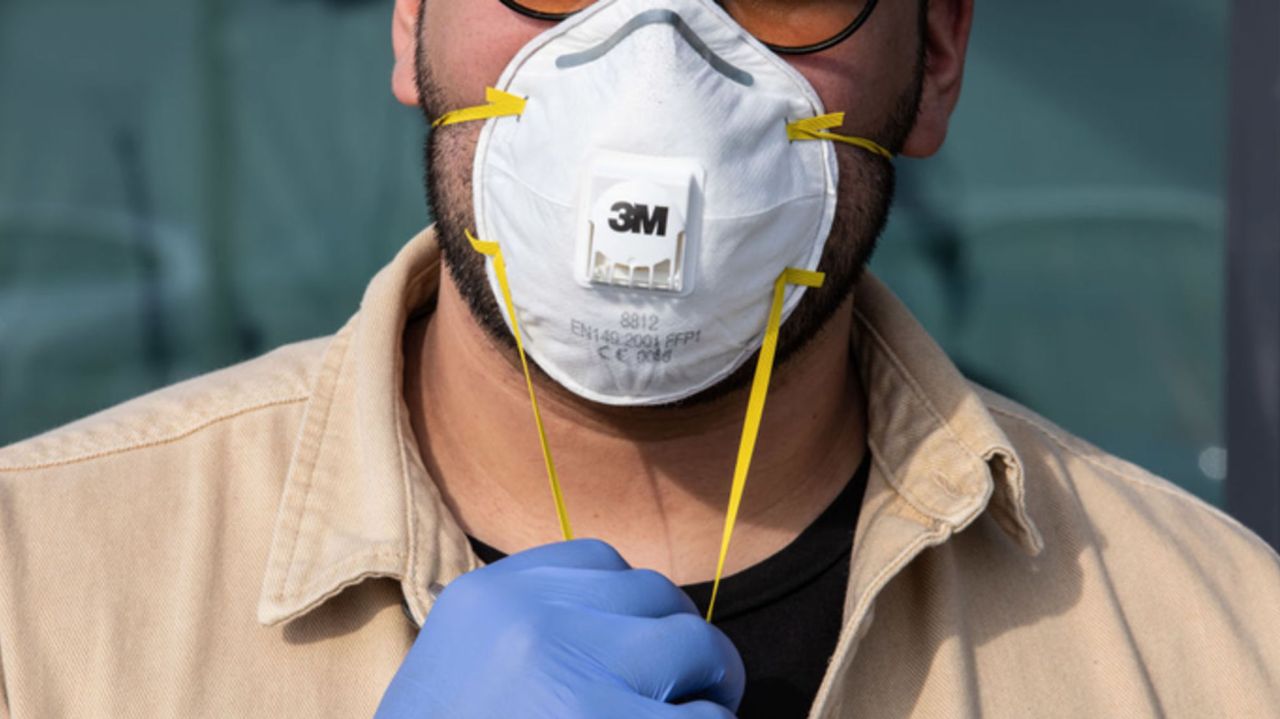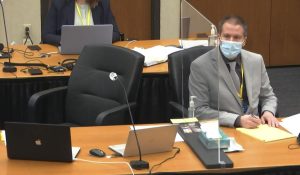As an emergency physician in rural Michigan, patients often ask me when it will finally be okay to stop wearing masks in public places. Here’s my answer: I’ll stop wearing a mask in my favorite restaurant when 90% of the people in it have been vaccinated.
Let me explain.
As a doctor of over two decades and a graduate student in public health at the University of Michigan, I still wear a mask, avoid large gatherings and skip indoor dining. And I’ve been fully vaccinated against COVID-19 since January. I urge you to take the same precautions, even if you’re fully vaccinated, too.
While a single vaccination protects an individual, we must also protect a community, a state, the nation and the world. And that’s what a vaccination program does. It’s the difference between caring for one person versus caring for an entire population. Plus, a vaccinated individual could still be vulnerable, though at a greatly reduced rate, if the community they’re in does not have immunity.
The science behind vaccination is simple. We develop immunity from antibodies both from infection of the virus, or vaccination from any of the available vaccines. Those antibodies, and certain cells in our immune system, allow our bodies to mount an immune response — a defense — when exposed to COVID-19, preventing us from getting sick.
We know all the vaccines available to us in this country do a phenomenal job of protecting people against hospitalization and death. To varying degrees, the vaccines also protect us against getting infected in the first place. And early evidence shows that a vaccinated person is less likely to pass COVID-19 to other people. It has been shown that vaccinated individuals who contract the virus have a lower viral load — the number of virus particles — than unvaccinated individuals. Previous studies have shown that a lower viral load equaled less infectiousness. This is promising because substantially reducing COVID-19 infection can bring down disease levels, further suppressing transmissions in the United States.
But, there’s a caveat. Like most things in life, vaccines are not entirely foolproof. Immunity is neither guaranteed, nor likely to last forever.
Our bodies are imperfect learners: While the human body can and does build natural responses to protect itself against future COVID-19 infections, reinfections can and do occur, as I recently saw in my emergency department, when a patient who’d had COVID-19 last year got sick with it again.
Vaccinations are ramping up at a critical time. Mutated COVID-19 variants from Britain, South Africa, Brazil, California and other places are spreading fast and showing up in communities across the nation. These mutations are more contagious and potentially deadlier.
While data are still emerging, current research suggests that the vaccines are somewhat less effective against some of these variants. As of this writing, only 63 million people have been fully vaccinated in the United States — around 19% of the U.S. population. On the long road toward community immunity, we’ve only covered a fraction of the journey. We’re in no position to be cavalier or complacent.
This brings us back to why I still wear a mask and haven’t dined in my favorite restaurant in more than a year, even though I’m fully vaccinated. If “fully vaccinated me” walks into my favorite restaurant right now with 10, or 100, unvaccinated people, an asymptomatic person with COVID-19 could be in that group. This is more than likely in my home state of Michigan, where infections and hospitalizations have more than doubled in the last two weeks, the test positive rate is over 15% and the number of daily new infections is quickly approaching the number we saw during the last wave. What’s happening in Michigan could happen and may already be happening in other states: a spike in cases fueled by contagious new variants, outbreaks linked to schools and youth sports, and a population too exhausted, defiant, complacent or all three to follow basic public safety protocols any longer. On any given shift at my emergency department, I see patients who embody all these factors.
And that’s why chance isn’t on my side, or yours, yet.
The more people with COVID-19 in my favorite restaurant, the higher my chances of getting infected — even though I’ve gotten the vaccine. Vaccinated me might beat back COVID-19 from the first person, even the tenth. The question is whether my defenses can hold up against the 11th person, or the 30th. Because only 19% of Americans are vaccinated right now, the risk of COVID-19 spreading and circulating in the air in the room is much higher than if 60, 80 or all 100 are vaccinated.
To reduce the risk of infection, we should wear a mask. And avoid being in that restaurant in the first place, at least for now.
It’s frustrating to endure the sacrifices of the last year, receive a shot or two, and still have to stay on guard. But the fact is, safety for all of us goes up as more people are vaccinated and we reach community immunity. Some experts say we can sufficiently suppress COVID-19 from spreading in my favorite restaurant when between 70 and 90 people out of 100 in it have been vaccinated. Because I know we’re a long way from being safe, I want to communicate a shared commitment to everyone’s safety by wearing a mask, by signaling to everyone that regardless of whether I’ve been vaccinated or not, I’m taking the basic action of protecting myself and others around me. While we vaccinate more people every day, we should resist the urge to tempt fate when we’re so close to community immunity.
We’re still months away from getting there. We’re on the edge of a fourth wave. I see this firsthand as COVID-19 patients once again start to pack the hospital where I work. These are people who assumed they were being perfectly safe by the standards of the moment: The man who thought a postgame get-together with other high school parents would be fine, the people who tell me they figured going to a restaurant was no big deal, the reinfected patient.
No matter where you live, then, this isn’t the time to ditch your masks, gather in large groups or drop your guard. If we can stay strong for just a few more months, I promise that when you finally have that meal at your favorite restaurant, it will taste even sweeter.
Rob Davidson is an emergency physician in West Michigan and executive of the Committee to Protect Medicare. This piece was written for The Washington Post.



















